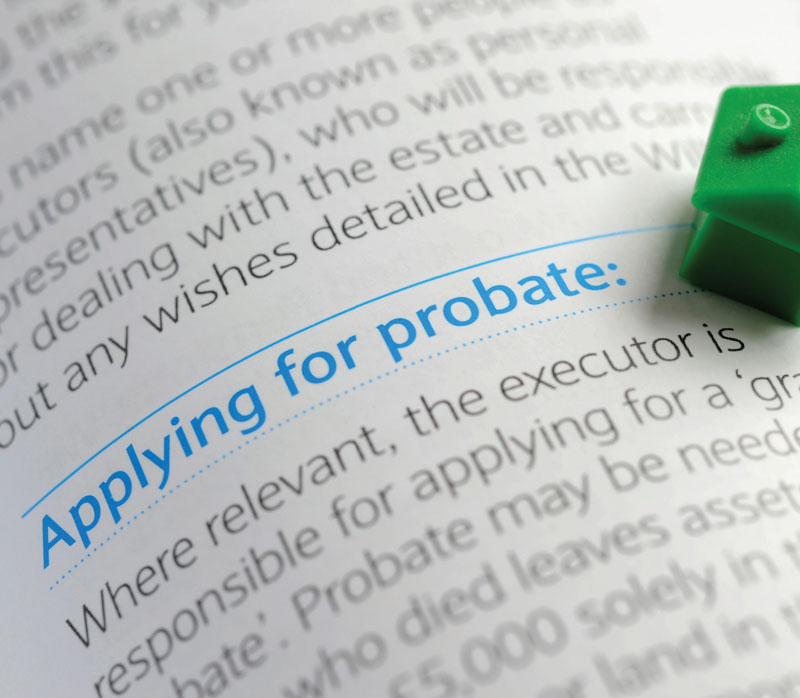Probate
Probate practice update
Nicola Laver summarises the most recent developments in probate practice to keep practitioners up to date and familiar with the current law.
Probate practice is an increasingly dynamic area of law, marked notably by a growing volume of case-law on issues of importance. Wills and probate practitioners, who have not yet fully appreciated the latest court rulings and judicial analysis of fundamental principles applicable to their practice area, should read on.
Probate practice cannot be undertaken by rote. Recent developments demonstrate just how vital it is for practitioners to understand that a relatively straightforward estate administration can quickly become highly complex – for a variety of reasons. This could include a claim from an aggrieved, disinherited relative, disputes concerning the testator’s capacity to make a will, or a tax issue.
A key consideration for all wills and probate practitioners is the increasingly international nature of legal practice in a world where, frequently, families are spread geographically, and individuals are more likely today to own assets abroad.
The deceased estate of an individual domiciled in the UK, who dies leaving assets in another EU country, may be affected by the new EU cross-border inheritance laws. Regulation (EU) No 650/2012 of the European Parliament and of the Council of 4 July 2012 on jurisdiction, applicable law, recognition and enforcement of decisions and acceptance and enforcement of authentic instruments in matters of succession and on the creation of a European Certificate of Succession (known as the EU Succession Regulation) applies to deaths on or after 17 August 2015 and allows individuals making wills to opt out of the forced
heirship rules that apply in a number of EU countries. This means that those persons can choose either the law of the country of their nationality, or their last habitual residence to apply to any assets they own elsewhere in Europe.
When someone dies, under the EU Succession Regulation the law of the EU country where they were habitually resident will apply, unless their will (if any) provides otherwise. As far as the UK is concerned, we opted out of the new rules. What this means is that a person cannot elect for the law of another EU country to apply in the UK to British assets; however, an election can be made in respect of assets in other EU countries. Practitioners must be alert to these new rules and how they apply in practice, whether you are dealing with an estate where there are assets abroad or advising a client making a will.

While on the subject of assets, when are lifetime gifts (ie, potentially exempt transfers) to be treated as an estate asset, and therefore chargeable to inheritance tax (IHT)? A recent ruling demonstrates that this question is not always easily answered (see below).
When taking instructions for the administration of a deceased’s estate, practitioners must gain a complete picture of the value of the deceased’s estate. This means gathering information about all the assets and debts of the deceased, including any lifetime gifts.
But is a beneficiary obliged to disclose to the executors a lifetime gift made by the testator? In a recent case, the testator died and his estate was valued at more than £3m (Hutchings v Commissioners for HM Revenue and Customs [2015] UKFTT 9 (TC)) . He had disinherited two children, and left £150,000 each to another two children. The fifth child, ‘A’ , was the residuary beneficiary of the estate. He did not tell the executors about a cash gift of £443,669 he received from his father seven months before his death, even though he had been asked by the executors on a number of occasions about any gifts received in the seven years before the death.
The executors submitted an IHT400 form on the understanding that there were no lifetime gifts. Two years later, HM Revenue and Customs (HMRC) was tipped off that A had an undisclosed, offshore Swiss bank account and demanded disclosure from A. Only then did A disclose that the deceased had transferred the money from an undisclosed Swiss account to A’s Swiss account. The HMRC’s claim for an additional £47,000 in IHT was upheld by First-tier Tax Tribunal. A penalty was also imposed on A.
A appealed the penalty (unsuccessfully) on the basis that he did not deliberately withhold the information, and that the executors had not been clear about what he should declare. In addition, his contention that the executors should have comprehensively searched the testator’s property for documentary evidence, and made enquiries of more organisations, was rejected.
What lessons can be learnt from this ruling? First, it is clear that beneficiaries and others have a legal duty of disclosure in relation to gifts made during the last seven years of a testator’s lifetime for the purposes of IHT. Second, executors can rely on the information provided to them by family members and their advisers. Their duty to the estate, beneficiaries and to HMRC does not extend to, for instance, carrying out detailed physical searches of properties for relevant documentation.
IHT issues can also potentially arise in the context of deeds of variation. A deed of variation is a highly useful legal instrument, which allows a beneficiary to redirect an inheritance (or part thereof ) to another beneficiary - often for tax purposes - whether or not the deceased died leaving a valid will.
Importantly, deeds of variation must include a claim for retrospective IHT treatment under Inheritance Tax Act (ITA) 1984 s142. In a recent case, a deed of variation was rectified on the basis that it did not reflect the parties’ intentions. The deceased left his estate equally to his widow and three sons, who entered into a deed of variation so that the widow inherited the entire estate, thus avoiding IHT.
However, in a salutary lesson on drafting for all practitioners, the solicitor who drew up the deed used a precedent document that was out of date because it did not reflect changes in the law under the Finance Act (FA) 2002. Under the FA, a statement claiming retrospective tax treatment must be included in a deed of variation; previously, this statement was not required.
This meant that the deed of variation was ineffective for tax purposes. An application was made successfully to vary the deed to give effect to the parties’ intentions. The Chancery Court found that there had been suÿcient mistake on the part of the parties, and ordered rectification of the deed (Vaughan-Jones and Griffiths v Vaughan-Jones and others [2015] EWHC 1086 (Ch); (2015) November CILExJ p25). However, the court noted that the deed was rectified only in relation to IHT. There was no suggestion that it was intended that the deed was also for capital gains tax purposes. The court therefore refused to rectify it to that extent.
Practitioners must beware of the importance of ensuring that all potential benefits of deeds of variations are considered in order to protect the best interests of all beneficiaries concerned. Related attendance notes and correspondence should clearly set out the intended benefits of instruments such as deeds of variation in case of future disputes.
Dependency claims under the Inheritance (Provision for Family and Dependants) Act (IPFDA) 1975 continue to exercise the courts. The high-pro file Court of Appeal ruling in Ilott v Mitson [2015] EWCA Civ 797; (2015) October CILExJ p24 has, arguably, undermined the fundamental principle of English law of testamentary freedom.
Testamentary freedom is the ability for testators to leave their assets to any individual or organisation they choose. It is limited by statute, notably under the IPFDA, in relation to which an individual, usually a dependant of the deceased, can apply to court for reasonable provision out of the estate.
In Ilott, the deceased’s only child was disinherited, having been estranged for some 26 years from her late mother, who left her estate to four charities. Her claim under the IPFDA was successful. An important factor was that the testator ‘had acted in an unreasonable, capricious and harsh way’ towards her daughter (para 51). Furthermore, the deceased had had no connection with the four charities, nor did they have any expectation of benefitting under the will. Although the daughter, who was dependant on state benefits, also had no such expectation, the court said that she was ‘deprived of any expectation’ because of the deceased’s behaviour towards her (para 51).
The Court of Appeal awarded the daughter £143,000 to buy a house, together with reasonable costs of the acquisition, and £20,000 to provide for her income needs. The court increased the original award of £50,000 because of the effect the original amount would have on her state benefits.
The definition of ‘dependant’ appears to have been widened significantly by the court to include adult children who are in diÿcult financial circumstances - even where there has been a lengthy and complete relationship breakdown between the testator and claimant.
The ruling also demonstrates that the testator’s motives are a factor the court may take into account. This means that when taking instructions for wills, practitioners must ensure that they have a full picture of the client’s family situation, so that if any child or dependant is not provided for under the will, the client can be advised of the potential consequences on their death. Probate practitioners faced with an IPFDA claim should be alert to the fact that such claims can be unexpectedly successful.
A claimant’s poor behaviour can also sound the death knell for a claim, as illustrated in Wright v (1) Waters (2) Waters (Executors of the estate of Mary Beatrice Waters deceased) [2014] EWHC 3614 (Ch). The deceased’s daughter made a claim against her late mother’s estate. Her behaviour included writing to her mother nine years previously, disowning her and wishing her dead. Other than one telephone conversation between them, there was no further contact.
The High Court dismissed the daughter’s claim: her conduct outweighed all the factors in her favour and it was ‘objectively reasonable’ for the will to make no provision for the claimant (para 101). The ruling demonstrates that individuals can disinherit a child if there is good reason. However, if the reason is capricious or unreasonable, as on the facts in Ilott (above), the court may take a different view.
